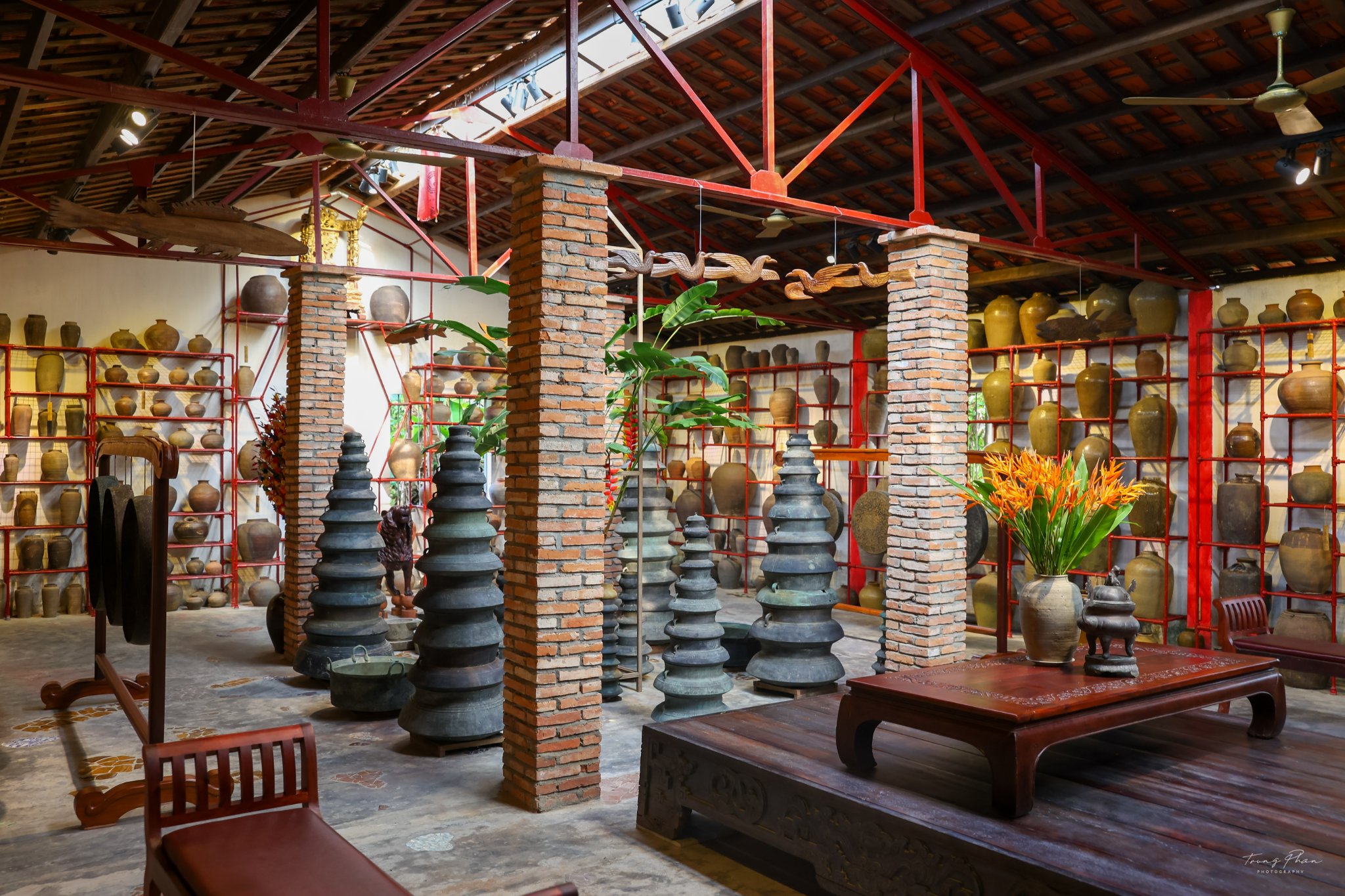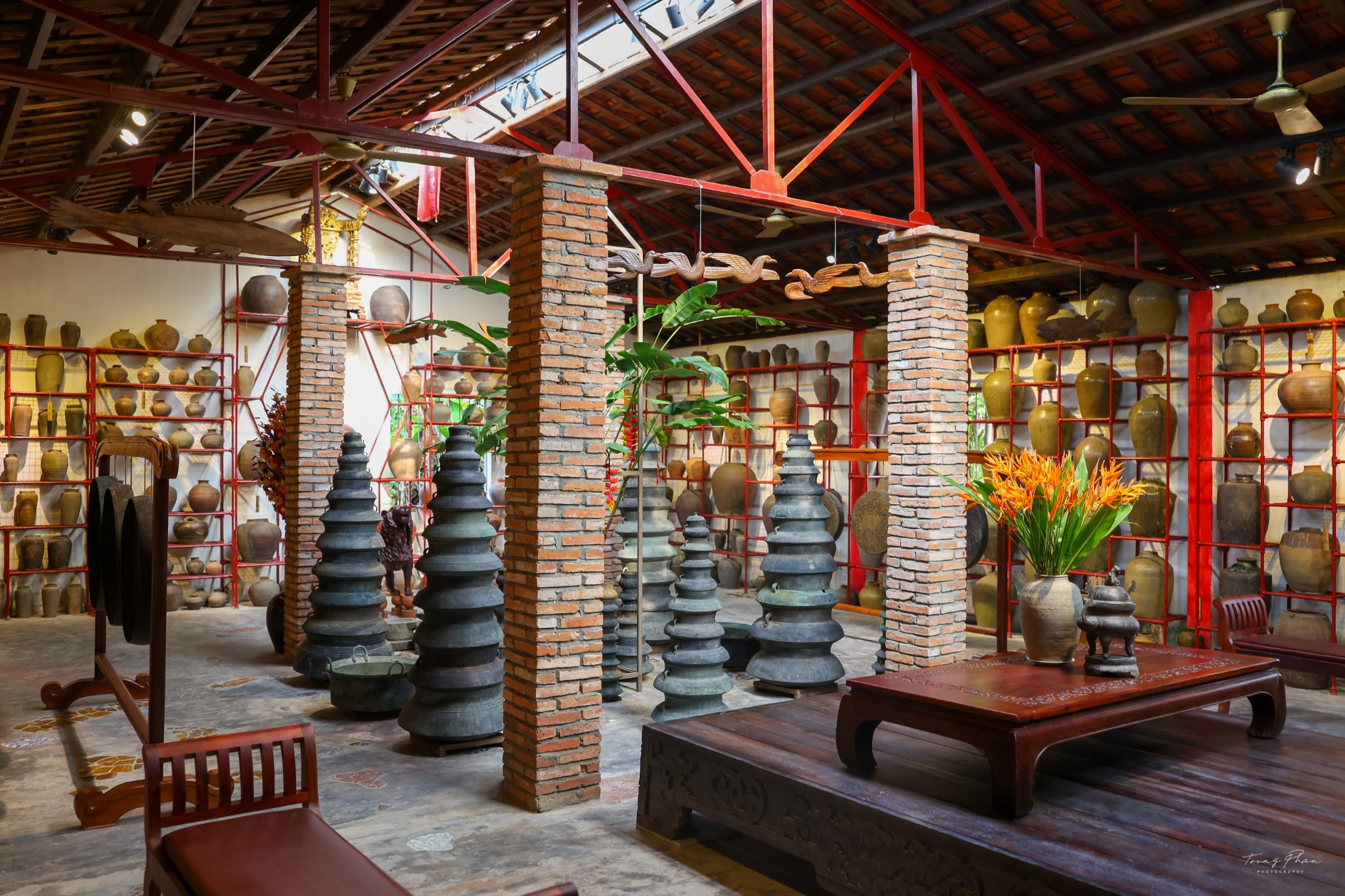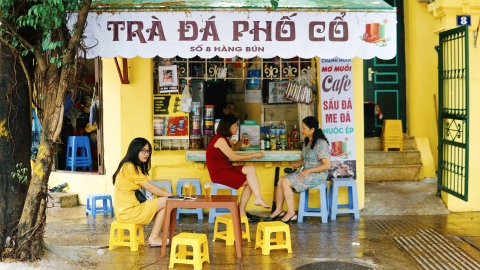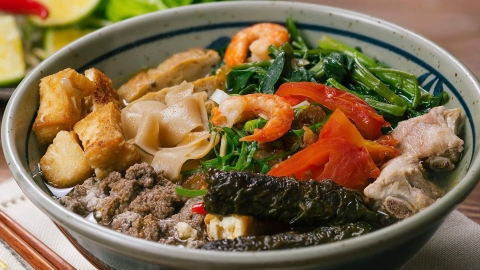On the banks of the Perfume River, about 500 meters from Thien Mu Pagoda, lies a very ancient and poetic space of Hue. This is Lan Vien Co Tich, comprising two spaces: the ancestral garden of the Thai clan and the Perfume River Ancient Pottery Museum, with over 5,000 artifacts dating back many years.
This year, I had the opportunity to visit a house steeped in ancient culture in Hue. The house boasts a sturdy wooden gate, a vast, sprawling garden, and houses many ancient artifacts from the former imperial capital. I learned that this is the private home and museum of Dr. Thai Kim Lan, a philosophy professor who teaches at Ludwig Maximilian University in Munich, Germany.
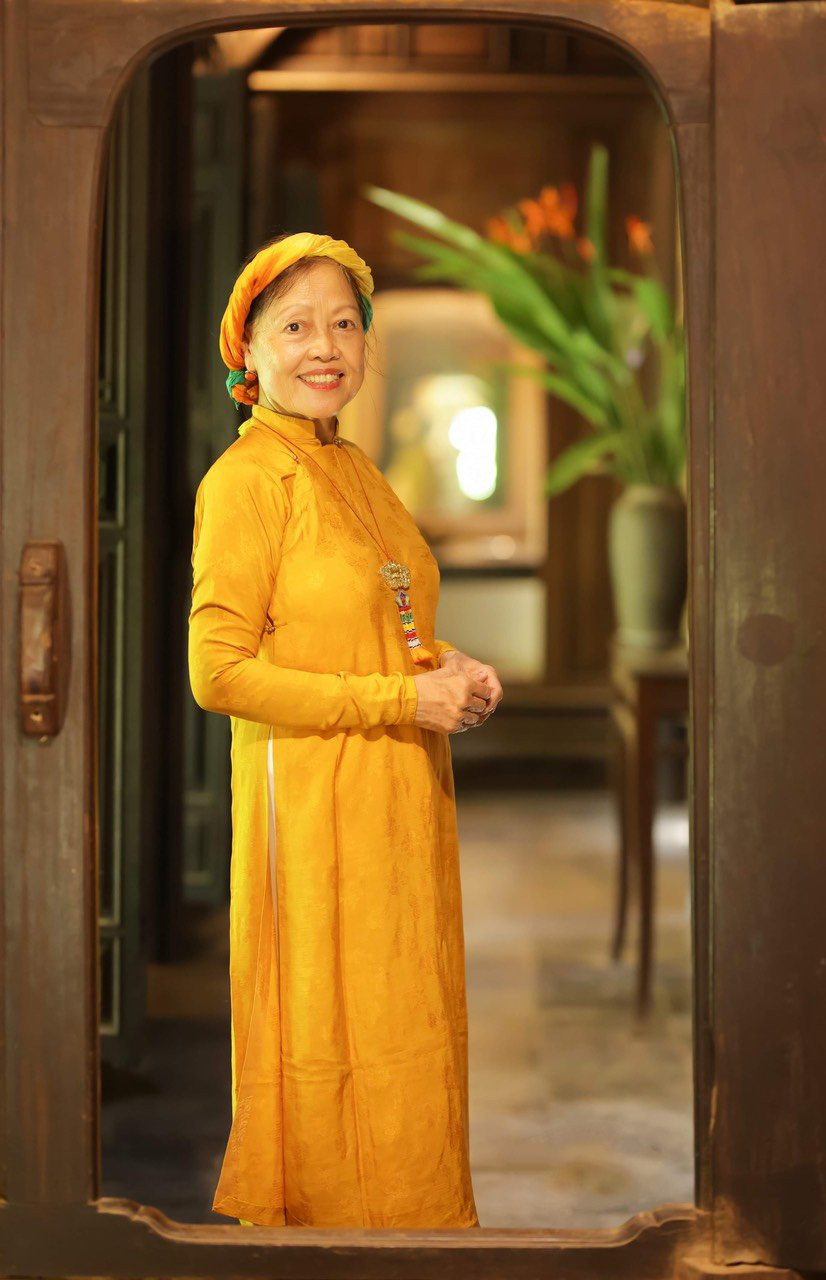
Ms. Thai Kim Lan returns after 50 years in Germany.
Ms. Thai Kim Lan's decision to open a museum.
It wasn't until several months after my visit to Hue that I had the chance to talk to her. She had a gentle voice, deeply influenced by the Hue dialect, and calmly recounted the reasons and her decision to return to Vietnam: “My sole motivation for returning from Germany to Hue and establishing a museum on my family's land was to create a place to preserve ancient culture, preventing its unique characteristics from gradually fading away.”
Ms. Kim Lan's house contains many antiques salvaged from the bottom of the Perfume River in Hue: various types of pottery, bronze items, wooden objects, mother-of-pearl inlaid items... among which pottery is the most numerous. Ancient pottery, glazed pottery, earthenware, and stoneware from the earliest times to the most recent periods. Each artifact is always accompanied by a bamboo tag (museum label) describing the type of pottery and its age.
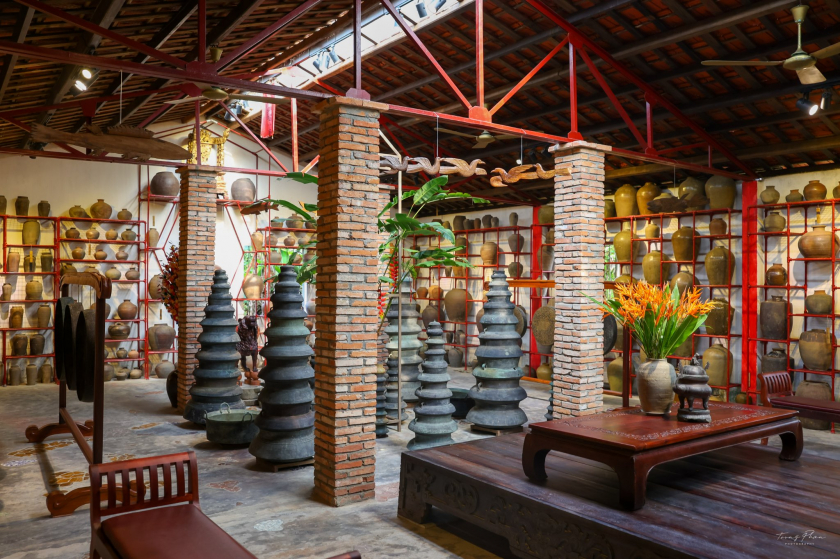
The private ceramics museum of Dr. Thai Kim Lan, a Doctor of Philosophy.
“She traveled from Hue to Germany to study and to return to help her country. Her sole purpose was cultural. Her family's culture and the culture of Hue must be explored, explored, and developed not only in Hue, but she also wants to bring it internationally. Friends everywhere need to know that Hue also possesses cultural values that need to be preserved,” Dr. Thai Kim Lan further shared.
These antiques were salvaged from the riverbed by boatmen and sold to Ms. Lan's family over many years. During her time teaching in Germany and traveling between the two countries, Ms. Thai Kim Lan gradually expanded her collection. Then, one day, the private museum "Huong River Ancient Ceramics Museum" was established with the recognition of the Hue city government.
Dr. Thai Kim Lan, a Doctor of Philosophy, cherishes the distant past and persistently preserves the cultural heritage of her family and her childhood. She confided: “In the process of organizing the museum, I consider this a quiet task, a private decision. I am still preserving and possessing the heritage of my family and myself. My job is simply to figure out how to rearrange the artifacts.”
"Do you have any plans to develop or expand the museum?" I quickly asked.
"She wants the museum to be developed and connected with all cultural activities around the world," replied Dr. Thai Kim Lan.
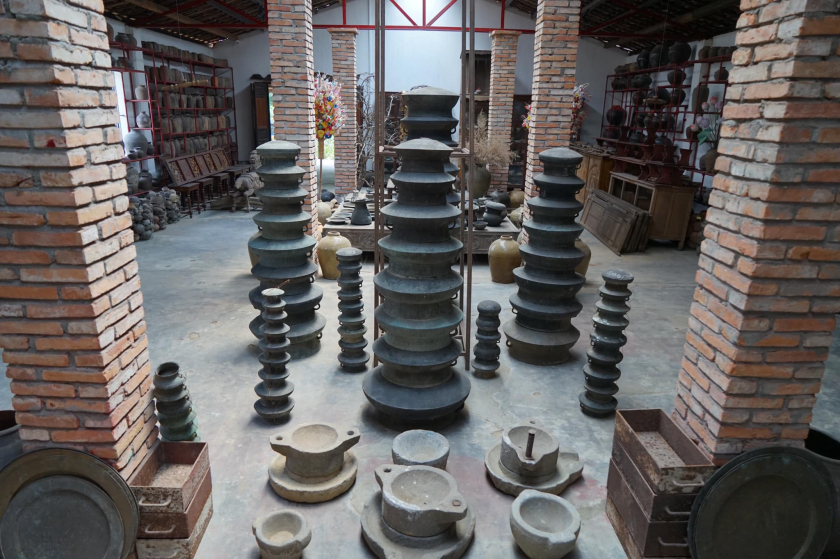
The Perfume River Ceramics Museum not only houses artifacts but also preserves the cultural heritage of Hue.
Ms. Thai Kim Lan further shared: "What is essential for a museum to thrive is to connect with other museums, to engage with other cultures and develop other fields. From there, we can exchange experiences about relics, sediments, and cultural heritage of the world with those who are interested in them."
"I am in a dialogue with myself."
Not only the museum, but also her own house is meticulously renovated and preserved. During the traditional Lunar New Year, she organizes traditional ceremonies such as the Ceremony of Raising the New Year Pole and the Ceremony of Lowering the New Year Pole as a way of expressing her longing and heartfelt desire to preserve the cultural identity of Hue and the country.
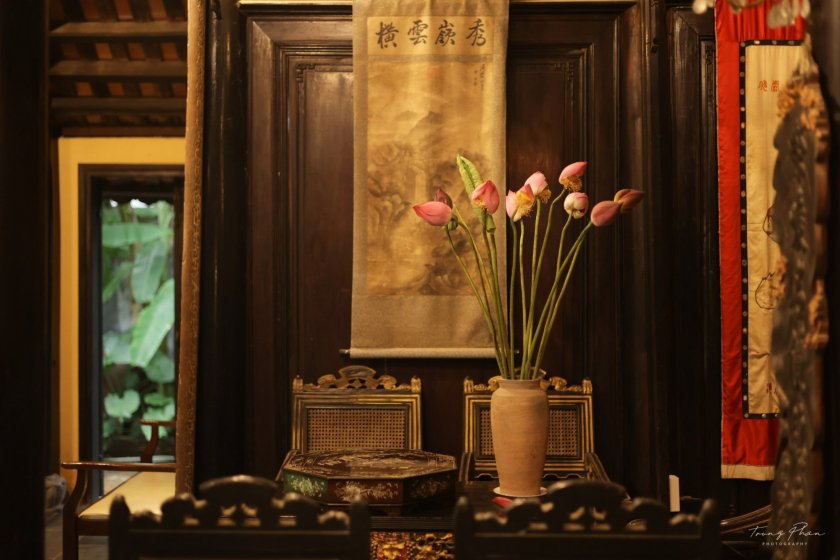
Inside the ancient house of Ms. Thai Kim Lan, which is many years old.
Ms. Kim Lan arranged and brought "a different light" into the house's decor, while still preserving "the old house style." She highlighted these elements but maintained a distinct arrangement: "Having lived abroad for many years and been exposed to many different cultures, I wanted to infuse modernity into this space. My grandmother's old houses were very dark, so when I returned here, I opened the doors to let light in, but still left some dark corners."
She explained to me that Western home design emphasizes light. They want to bring as much light as possible into the house. In contrast, in the East, darkness is everywhere, and the house already has many hidden corners where light can hardly penetrate. According to Ms. Thai Kim Lan, people in the past often kept the doors of their traditional houses closed.
"I didn't push too much darkness, nor did I let in too much light. Everything from the past, when I renovated the house, I insisted on keeping and perfecting it to the very end. As a result, although the old house deteriorated over time, I rebuilt it in a different way to create a fusion of Eastern and Western styles," she added.
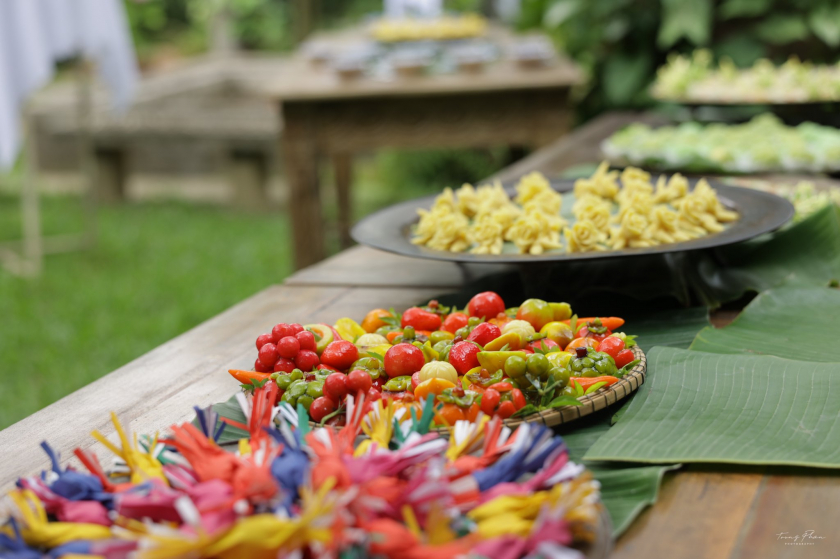
A ceremony at the home of Dr. Thai Kim Lan.
The conversation lasted over an hour. Ms. Kim Lan told me countless stories about ancient relics, about the arduous yet joyful process of building Lan Vien Co Tich. Then she confided in me about the difficulties in constructing the place. She said she had to go through many self-questioning sessions and reflect on her conversations with everyone to ensure everything was as perfect as possible.
During this process, the dialogues gradually became clear. She stopped engaging with external influences and decided to turn inward to clarify her findings. She confided that she understood better than her predecessors why she understood things like, "Why did they place the horizontal and vertical columns like that?" or "Why is the height of the house like that?"...
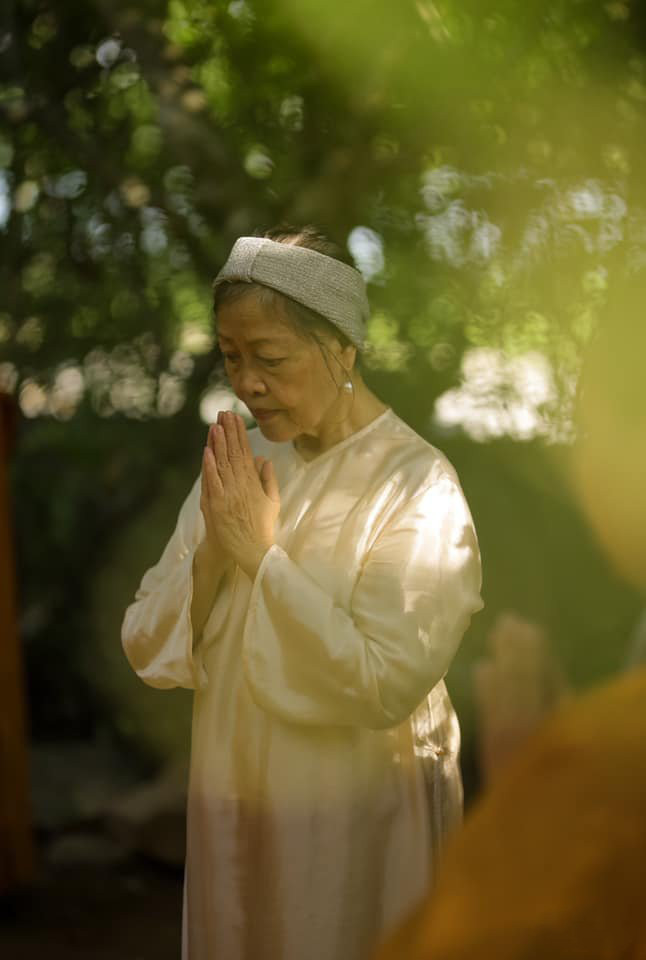
Ms. Thai Kim Lan had a dialogue with herself.
“She feels like she’s living in multiple dimensions—present, past, future, East, and West… She finds this broadens her worldview and perspective. She travels to many different worlds in a single moment. She’s optimistic and loves life in her work,” she shared, her tone slowing down, emphasizing each word, yet her voice still captivated and charmed me.
Philosophy Doctor Thai Kim Lan also hopes that her efforts will create much-needed cultural bridges in the world. Then, suddenly, she shared a deeply philosophical idea that has been the subject of her research for almost half her life: "People can live more peacefully, less selfishly, more tolerantly, and with greater security instead of isolating themselves in a corner or seizing things that do not belong to them."

 VI
VI EN
EN



